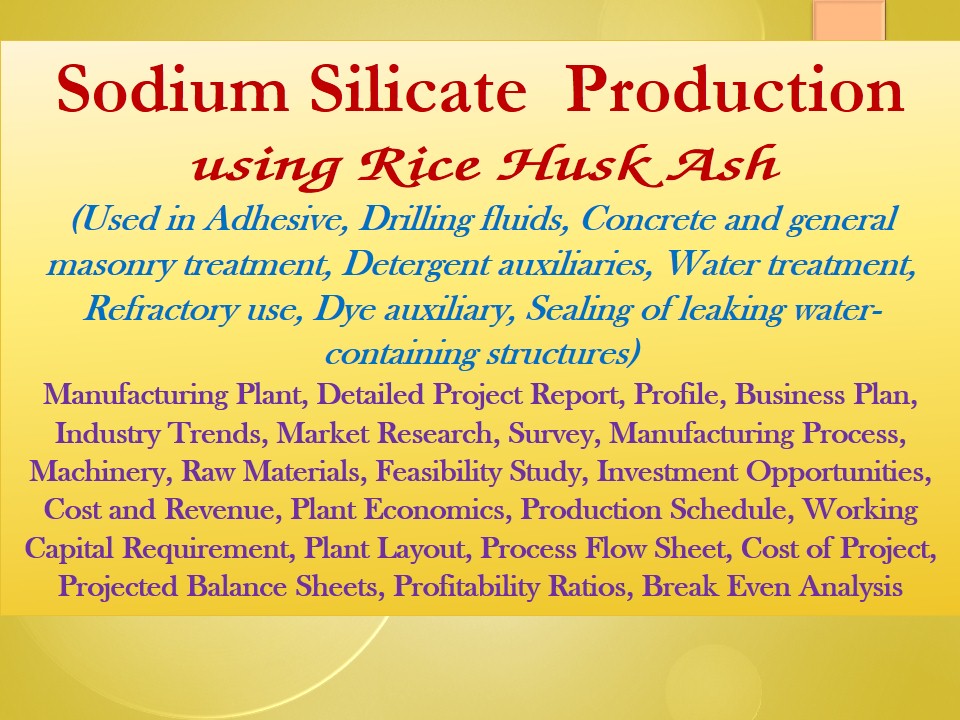
Every year, large amounts of rice are processed across the world. This generates tons of rice husk, often left unused. But this waste has hidden value. When burned properly, rice husk creates ash rich in silica. That silica becomes the base to make sodium silicate from rice husk ash—a product with wide industrial use. This sustainable method not only adds value to waste but also supports eco-friendly manufacturing.
What Is Sodium Silicate from Rice Husk Ash and How Is It Made?
Rice husk ash (RHA) contains over 85% silica. This high silica content makes it a good raw material for sodium silicate production. Using rice husk ash is cleaner and cheaper than mining silica from natural resources.
See Also – AAC Blocks Manufacturing
Let’s explore the manufacturing process step by step:
1. Collection and Combustion of Rice Husk
Rice husk is collected from mills and burned under controlled heat (600–700°C). This prevents carbon buildup and ensures high-purity ash.
2. Extraction of Silica
The rice husk ash is mixed with sodium hydroxide (NaOH). This reaction forms a sodium silicate solution:
SiO? + 2NaOH ? Na?SiO? + H?O
3. Filtration and Purification
Impurities and unreacted particles are removed from the solution using filters. This step helps maintain consistency and quality.
4. Evaporation and Final Processing
The solution is concentrated. It can be left as a liquid or dried into solid sodium silicate, depending on the final use.
This entire process is efficient, clean, and environmentally friendly. That’s why sodium silicate from rice husk ash is gaining global attention as a green alternative.
Key Applications of Sodium Silicate from Rice Husk Ash
Thanks to its chemical properties, sodium silicate is used in many industries. And when made from rice husk ash, it becomes an even better solution—economical and sustainable.
1. Construction Industry
It acts as a concrete hardener, waterproofing agent, and surface sealant. It strengthens cement and prevents moisture damage.
2. Detergents and Cleaners
In cleaning products, it softens water and improves cleaning power. It is non-toxic and safe for home use.
3. Paper Industry
Sodium silicate helps de-ink recycled paper and bleach wood pulp. It also increases paper strength and brightness.
4. Metal Casting
It works as a binder for sand molds in foundries. The molds resist heat well and produce accurate castings.
5. Packaging and Adhesives
Used in adhesives for paper and cardboard, it also works well in heat-resistant and fireproof applications.
6. Soil Improvement and Agriculture
Sodium silicate boosts plant resistance and improves soil structure. It supports water retention in dry areas.
7. Water Treatment
It prevents pipe corrosion and helps remove impurities from water. It’s safe for drinking water systems.
Using sodium silicate from rice husk ash makes all these applications more sustainable without compromising performance.
Why Industries Prefer Sodium Silicate from Rice Husk Ash
Sustainability is not the only reason why industries are shifting to rice husk–based sodium silicate. Let’s take a closer look at the advantages:
Cost Savings
Rice husk ash is a cheap and locally available resource. This reduces manufacturing costs, especially in rice-producing countries.
High-Quality Silica
If burned correctly, the ash contains high-purity silica. This leads to better-quality sodium silicate.
Eco-Friendly Process
The method reduces mining and carbon emissions. It supports clean energy goals and waste management initiatives.
Circular Economy Benefits
It promotes recycling and reuse. Agricultural waste becomes a valuable industrial product, which supports a circular economy.
Government Incentives
Many governments now support sustainable manufacturing. Subsidies and tax benefits make this method even more attractive.
For companies aiming to reduce their environmental impact, sodium silicate from rice husk ash is a smart and scalable solution.
Challenges in Production
Even though this method is promising, some challenges exist:
-
Inconsistent Ash Quality
Improper combustion can reduce silica content. Temperature control is critical for high-purity output. -
Technology Gaps
Not all regions have the right facilities for processing RHA into sodium silicate on a large scale. -
Awareness Levels
Many companies still rely on traditional sources. They may not be aware of this eco-friendly alternative.
Despite these challenges, demand for green materials is rising. With better infrastructure and training, adoption will likely increase in the near future.
Environmental Impact and Sustainability
Using rice husk ash has clear environmental benefits:
-
Less Waste: Reduces dumping of rice husks in landfills
-
Lower Emissions: Burns husks in a controlled way to reduce smoke and carbon
-
Resource Efficiency: Saves natural sand and energy used in traditional methods
These benefits make sodium silicate from rice husk ash one of the best examples of turning waste into wealth. It’s a practical solution for industries aiming to go green.
What’s Next? The Future of Rice Husk–Based Sodium Silicate
The future of this product looks promising. Researchers are exploring new uses in advanced industries:
-
Nano Silica from Rice Husk Ash: Used in paints, electronics, and high-performance concrete
-
Battery Materials: Silica may be used in future battery technologies
-
Eco-Friendly Packaging: Can support the growing demand for biodegradable packaging materials
As industries evolve, the role of green materials like sodium silicate from rice husk ash will become even more important.
See Also –Citrus Oil Extraction
Final Thoughts
Turning agricultural waste into useful chemicals is a smart step toward sustainability. With simple technology and low cost, sodium silicate from rice husk ash offers both environmental and economic benefits. From construction and cleaning to agriculture and packaging, the applications are diverse and growing.
Industries today need to think long-term. Choosing this green alternative can help reduce costs, protect the environment, and support innovation. The future belongs to those who turn problems into opportunities—and rice husk ash is a great place to start.
Contact Us














